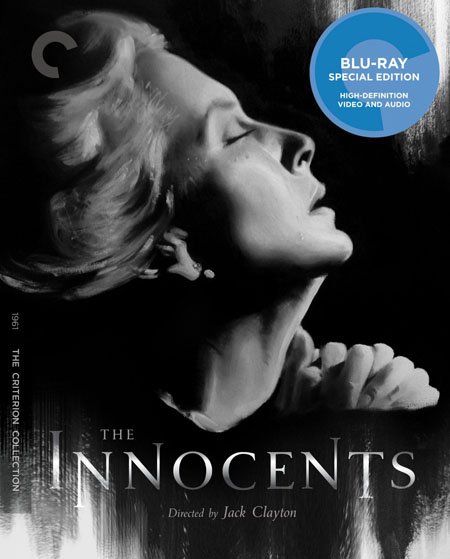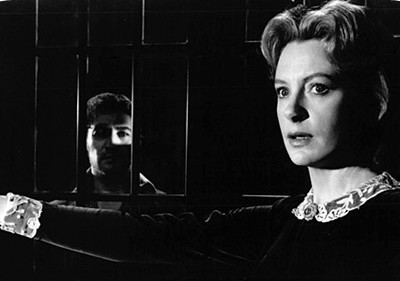
RETRO-ACTIVE: THE BEST FROM THE CINEMA RETRO ARCHIVES
A GHOST STORY FOR
ADULTS
By Raymond Benson
Under
appreciated upon its original release in 1961, The Innocents is today considered one of the great film ghost stories. After all, it’s based on Henry James’
creepy The Turn of the Screw, a truly
scary masterwork published in 1898. In the capable hands of Jack Clayton (fresh
off his success with Room at the Top,
which had been nominated for Best Picture and Best Director in 1959), the
picture delivers a classic Gothic punch that is strange, beautiful, and,
ultimately, powerfully disturbing. Faithful to the source material, the story
is set in the Victorian era. The gorgeous and inimitable Deborah Kerr stars as
a naive and, as it turns out, sexually repressed governess who is hired by an
eccentric and secretive man (“The Uncle,†played by Michael Redgrave). She is to
be a governess to his orphaned niece and nephew at a lonely country estate,
aided by only a couple of servants. He neglects to tell her the place is
haunted as hell.
Noted
film scholar Sir Christopher Frayling, in a video introduction on the background
and production of The Innocents, says
that a pivotal scene in the film might be more unsettling today than it was in
1961—and that is when the young nephew (Martin Stephens) plants a very adult
kiss on his governess. Yikes! Frayling’s right! At this point the movie takes a
sharp left turn into true darkness, the prickly kind that prompts you to turn
to your neighbor and say, “Eww.†That’s right, this is a film more about sex than
it is about ghosts, although it is certainly that, too. The ghosts happen to be
the former governess and valet, who apparently had a steamy love affair in the
house, not caring who witnessed it—not even the children. Both died in
unnatural ways. The plot gets even more sick—the ghosts are attempting to
possess the children so they can continue their love affair in new bodies. What? The bodies of siblings, the ages of whom are somewhere between ten and
fourteen?
Eww.
So,
right there we know that the giant multi-room house, inside of which the
governess is losing her mind, is haunted by sex.
Vile, evil sex. And Ms. Kerr’s Miss Giddens, the daughter of a conservative pastor,
reacts appropriately. Thus, we are presented with the best kind of ghost story—an
ambiguous one. Are there really ghosts? Or is Miss Giddens skyrocketing off her
rocker? It’s up to us to decide. It’s not on a whim that the film was originally
marketed as adult fare.

Clayton’s
sensitive and assured direction, along with Kerr’s riveting performance,
certainly bring to the film its winning qualities, but two elements of the production
are essential to the picture’s success—the cinematography by Freddie Francis
and art direction by Wilfred Shingleton. Francis’ work is specially showcased
in this new Blu-ray disc from The Criterion Collection. Francis shot the movie in
CinemaScope black and white, and yet he also shaded the corners to shape the
image into a subtle, oblong, and more tunnel-like rectangle. The striking
contrasts in lighting that occur throughout the interiors and exteriors are, oddly,
almost characters themselves in this eerie story. Brilliant stuff.
And
it all looks marvelous, for Criterion’s new 4K digital restoration is
flawlessly executed—the images truly reach a high-water mark for black and
white celluloid on Blu-ray. Sir Christopher Frayling also provides an informed
audio commentary. Other extras include a video interview with cinematographer
John Bailey about Francis and his work, and a new documentary featuring
interviews with Francis himself, editor Jim Clark, and script supervisor Pamela
Mann Francis. The essay in the glossy booklet is by Maitland McDonagh.
Without
question, The Innocents is a classy
and elegant release of a stylish and chilling motion picture. Highly
recommended.
CLICK HERE TO ORDER FROM AMAZON